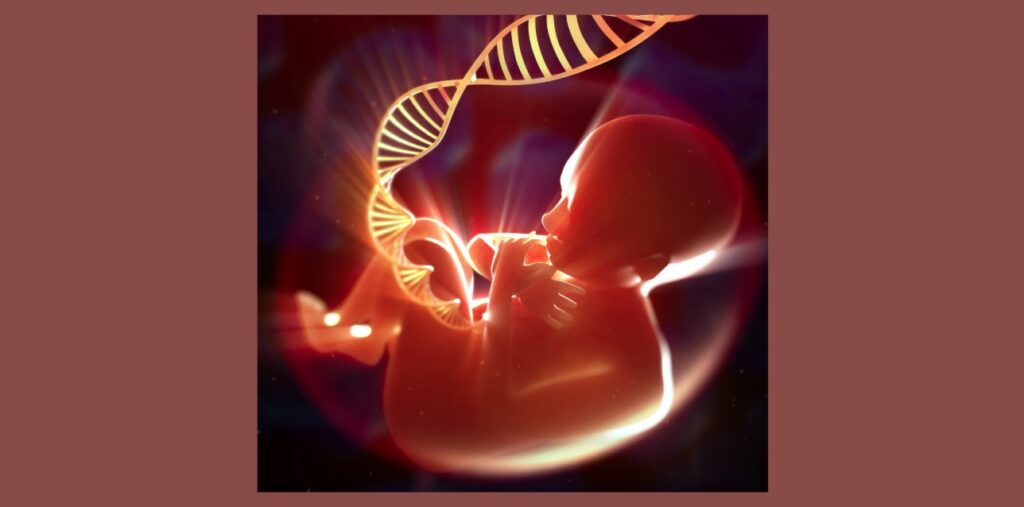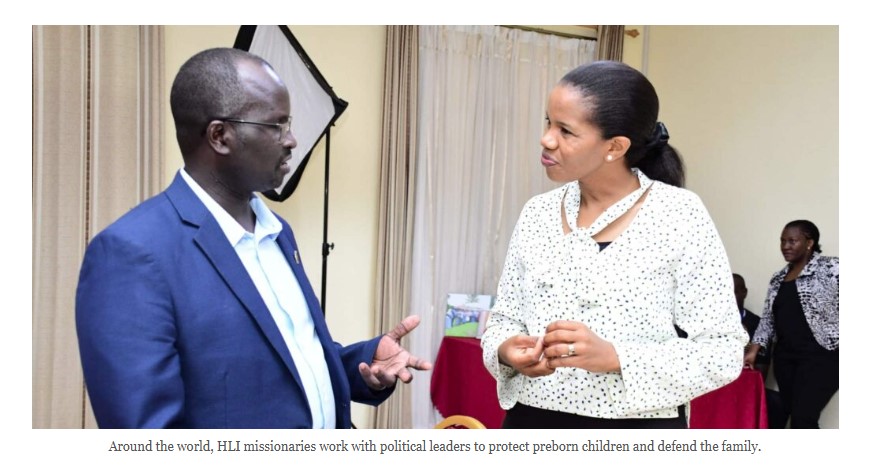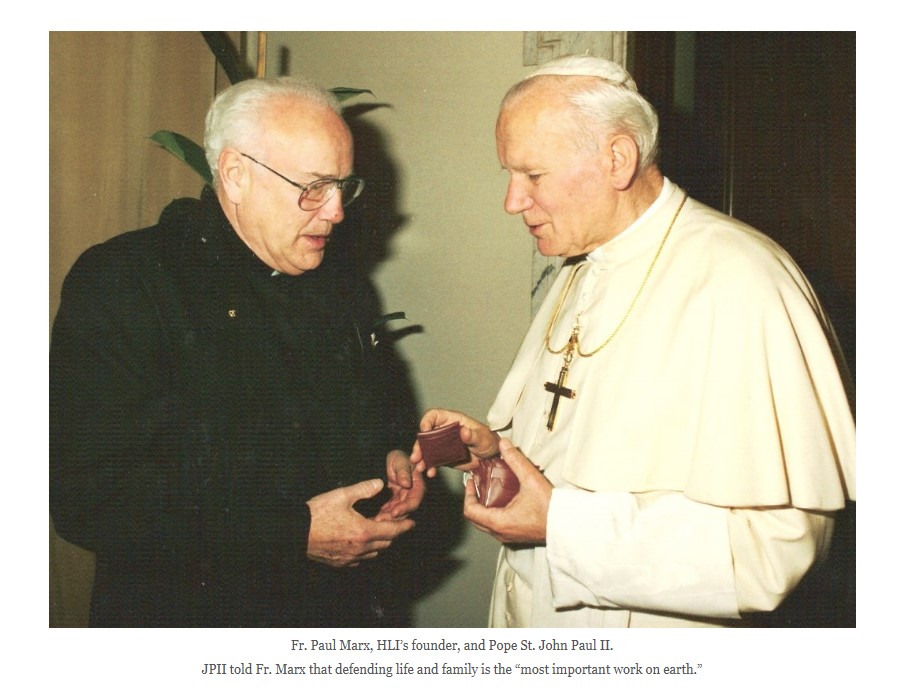
Why Abortion Is the Pre-eminent Moral Issue
By: Fr. Shenan J. Boquet, originally published October 13, 2025, Human Life International

In Forming Consciences for Faithful Citizenship, the U.S. bishops provide ethical guidance on the political responsibilities of Catholics. It assists Catholics, in light of the Church’s teaching, to form their consciences and to learn about Catholic social doctrine on fundamental moral issues, which give shape to political, cultural, and social issues.
As a pro-life leader, I am delighted with the strong language in the guide on the topic of abortion. “The threat of abortion remains our pre-eminent priority,” the introduction to the most recent version of the guide states, “because it directly attacks our most vulnerable and voiceless brothers and sisters and destroys more than a million lives per year in our country alone.”
Some people are uncomfortable with this language. They argue that there are many threats to the sanctity of life in the U.S., and not just abortion. This includes such things as the rise of euthanasia, degrading treatment of immigrants, the use of the death penalty, the exploitation of workers, and more. Shouldn’t these also be treated as among the “pre-eminent” issues for Catholic voters and politicians?

There is no question that these issues are of great importance, and that the Catholic Church has much wisdom to offer on them. Indeed, the Church’s teachings are remarkably comprehensive and nuanced, offering the single most coherent understanding of ethics to be found anywhere: all built upon the fundamental principle of the dignity of the human person, made in the image and likeness of God (cf., Gen 1:27; Catechism of the Catholic Church, 1700).
Unfortunately, however, we still find a great deal of confusion among the faithful (and indeed, even many clerics!) about why some issues are weighted more heavily than others. One of the greatest ongoing sources of confusion, is the U.S. Bishops’ designation of abortion as the “pre-eminent” issue.
“Why?” ask many people, “should this be so?” Can’t a Catholic legislator devote his or her life to something as important as serving the poor, and thereby be considered a “faithful Catholic,” even if he or she should happen to have “pro-choice” views on the topic of abortion? After all, time and time again Christ exhorted His followers to care for the poor, suggesting that this loving concern for the downtrodden is at the very core of His ethical teaching.
This is the argument one hears all the time in the media. One also hears it from comfortable Catholics and clerics who wish to curry favor with the world by hobnobbing with and raising up for adulation the wealthy and the powerful, who are more than happy to discuss “the poor,” while pouring their billions into supporting some of the most virulent pro-abortion organizations on the planet.
A False Dichotomy
The first thing to note, is that this distinction between taking care of the poor, and being pro-life, is a false one. Who, after all, is more poor than the preborn child?
The preborn child not only possesses nothing of his or her own in terms of material possessions, but the child is also completely powerless. The preborn child depends completely upon the loving care of his mother and other caregivers for life itself. The preborn child cannot advocate for himself. He cannot respond to the sinister lies of powerful people who accuse him of being no more than a “blob of tissue.”
It is for this reason that St. Teresa of Calcutta (Mother Teresa) famously spoke with great passion about the plight of the preborn in her Nobel Peace Prize acceptance speech, in which she spoke of how the world can do better in caring for the “poorest of the poor.”
“For if a mother can murder her own child in her own womb, what is left for you and for me to kill each other?” Mother Teresa said. “Even in the scripture it is written: Even if mother could forget her child – I will not forget you – I have carved you in the palm of my hand. Even if mother could forget, but today millions of unborn children are being killed.”
She added, “To me the nations who have legalized abortion, they are the poorest nations. They are afraid of the little one, they are afraid of the unborn child, and the child must die because they don’t want to feed one more child, to educate one more child, the child must die.”
The Radical Principle of Catholic Social Teaching
The first and inviolable principle of Catholic Social Teaching is the intrinsic dignity of every human person. It is this principle that anchors the Catholic commitment to defend human life, from fertilization (conception) until natural death.
The Church’s insistence on the intrinsic dignity of the human person makes it an anomaly in the history of human civilization. Prior to the coming of Christ, the norm in almost all cultures was that certain “in” people were considered to have certain rights, while everyone else was essentially a non-human, or a lesser human.
Even the great Aristotle, whose teachings are in so many respects far ahead of their time in their compassion, generosity, brilliance, and rigor, defended slavery as a “natural” institution. In this, he was simply a product of the paganism that was the de facto worldview of the time.
And now, tragically, as our society moves away from the Judeo-Christian worldview which guided it for 2000 years, we are seeing a reversion to the old, pagan ethic. We now find it being openly taught that some people are more or less valuable, depending upon certain extrinsic characteristics they have, as opposed to equally valuable because of the one, intrinsic characteristic that they can never gain or lose, i.e. that of being a human being.
As the Congregation for the Doctrine of the Faith wrote in Dignitatis personae, “The dignity of a person must be recognized in every human being from conception to natural death. This fundamental principle expresses a great yes to human life” (no. 1).
It is the Church’s uncompromising commitment to this principle that has placed Her at the vanguard of the defense of human rights throughout Her 2,000-year history. As Pope St. John Paul II wrote, in a passage that boasts with a rightly-ordered pride about the contributions of the Church within history,
The Church has never yielded in the face of all the violations that the right to life of every human being has received, and continues to receive, both from individuals and from those in authority. The human being is entitled to such rights, in every phase of development, from conception until natural death; and in every condition, whether healthy or sick, whole or handicapped, rich or poor (Christifideles laici, no.38).
The Right to Life as the Foundation for All Rights
Pope St. John Paul II often reiterated the idea that the foundation for Catholic social teaching is the proper understanding and value of the human person, in as much as “man is the only creature on earth which God willed for itself.” God has imprinted His own image and likeness on man (cf., Gen 1:27), conferring upon him an incomparable dignity” (Centesimus annus, no. 11).
Abortion – and its mentality – remains pre-eminent because it directly attacks life itself.
Moreover, abortion often takes place within the sanctuary of the family, thus contradicting and undermining the nature and vocation of the family.
Again, this does not mean that other threats to life and the dignity of the human person like euthanasia and human trafficking are to be ignored. What is being asserted is that abortion surpasses all others in importance. Abortion is distinct from other social ills because the innocent child in the womb has no legal protection. It is pre-eminent in that it immediately attacks the basic human right on which all other rights depend.
After all, if a preborn child is killed, that person will never be able to exercise any other human rights. To keep this pre-eminent issue foremost in mind helps form individual consciences which help to shape society and culture.
The CDF’s Declaration on Procured Abortion declares that “the first right of the human person is his life. He has other goods, and some are more precious, but this one is fundamental — the condition of all the others. Hence it must be protected above all others.”
In defending the idea that abortion is the “pre-eminent” issue of our time, we also cannot ignore the sheer scale of children murdered globally each year by abortion – estimated around 60 million (over 1 million in the U.S).
If we fail to acknowledge that abortion is a pre-eminent issue, then people will be inclined to believe that abortion is just one issue among many and shouldn’t give it any special attention. This mindset would further devalue human dignity in the society’s conscience.
JPII: Be “Obsessive” About Fighting Abortion
Pope St. John Paul II in Crossing the Threshold of Hope, once commented, when asked if he was “obsessive” with the abortion issue, “It is difficult to imagine a more unjust situation, and it is very difficult to speak of obsession in a matter such as this, where we are dealing with a fundamental imperative of every good conscience — the defense of the right to life of an innocent and defenseless human being.”
The Church’s uncompromising pro-life position provides a lens through which we view every political, cultural, social, and economic issue. It should inform every aspect of our participation in society.
When we view our social and political obligations through this lens, we are motivated to work towards radical transformation in our society. It is not enough merely to “tweak” this or that law. Rather, we must, like voices crying in the wilderness, call society back to the deep truths which it has forgotten.
The Church provides everything we need to do this. While She enthusiastically supports all efforts to defend the poor and downtrodden, what is needed is a deep spiritual, ethical, and anthropological paradigm shift in society. This is because, if we are to protect the preborn, everything from our attitudes towards sex, to the family, to the role of religion in public life, must change, so as to create a protective wall around the most innocent.

And, as we have seen over the decades, when our lives are shaped by a proper moral vision, we can become powerful far beyond our limited, individual capacity. Motivated by a prophetic commitment to the sanctity of all life, we can even see the “settled” law of Roe v. Wade being overturned, and the closure of hundreds of abortion clinics.
Ultimately, when we point out that abortion is the pre-eminent issue facing our society, what we are addressing is the problem with a “divided life.” As the Second Vatican Council Fathers said, “This split between the faith which many profess and their daily lives deserves to be counted among the more serious errors of our age” (Gaudium et spes, no. 43).
This means there is the split between a person’s faith and daily life and practices, which can lead to imbalances and misplaced devotion. However, when living as Christ teaches, we are drawn into a living, conscious, and active faith. This helps to inform our decisions, which are made after considering the effect on the dignity of the human person.
Catholic politicians, just as much as anybody, are called to integrate their faith within their work. Certainly, there can be no excuse for downplaying abortion as “just another” issue, rather than one that is uniquely consequential, as it threatens the lives of untold millions of preborn children, and thereby poisons so much of the rest of society with the poison of the culture of death.
Fr. Shenan J. Boquet is president of Human Life International and a leading expert on the international pro-life and family movement.
